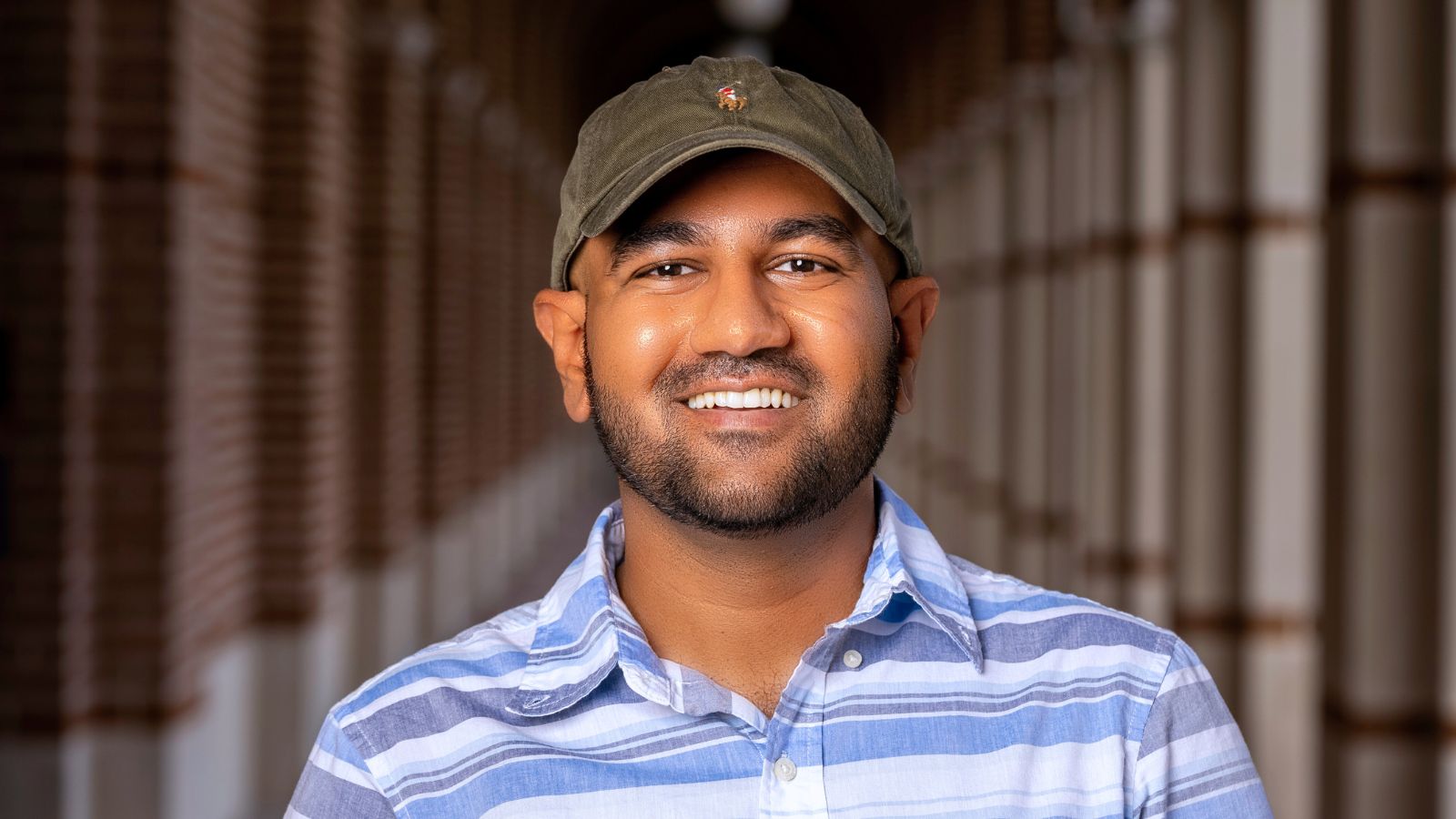The newest quantum computing researcher in Rice University’s Department of Computer Science is assistant professor Tirthak Patel. Because he is interested in making quantum computing more accessible and more effective, Patel responded quickly to a request for a simple analogy about quantum computers.
“This is an oversimplified analogy, but suppose you ask a conventional computer, ‘How much did I score on a given test?’ If programmed appropriately, it responds with your actual score.
“If you ask a quantum computer the same question, it would tell you a different score every time you ask it because the quantum computer can internally believe that you have received all the scores within the range all at once, albeit with different likelihoods. Clearly, we don’t want these quantum computers addressing all our problems.”
He explained that the same ability of a quantum computer to hold a "superposition" of many different states simultaneously makes it an excellent candidate to solve more challenging computing problems.
“Currently, many of our important daily computational tasks run in the background on data centers consisting of thousands of computers, but the results are still suboptimal. For example, our weather forecasting algorithms require ‘extreme scale’ computational power to provide accurate predictions, but these results are still approximate because even the largest of our data centers do not have sufficient computational power to run the problem to its full extent.
“Leveraging the unique quantum mechanical properties of quantum computing would vastly improve our forecast accuracy. Other applications that could benefit from quantum computing include more optimal traffic/route planning, faster scientific discoveries, and optimizing supply chain management to yield lower consumer costs.”
Developing software and compilers for quantum computers
The idea of quantum computing was first proposed in the 1980s. The computing power available at that time in the most sophisticated data centers was not sufficient to model even the smallest of quantum physical systems. Quantum computers proved difficult to design and harder to build.
Today’s quantum computers have come a long way, but Patel’s research focus – developing software and tools for quantum computing – stems from his recognition of the fundamental challenges they still face. He said the devices are inherently noisy (meaning the results include extraneous bits of data not useful for the solution) and susceptible to errors during computation; both issues hamper the ability to perform certain calculations accurately.
“The quantum computers available today are still in their nascent stages and they exhibit imperfections that can be mitigated but not eliminated entirely,” said Patel. “Addressing this challenge requires a systems-level approach to quantum computing.
“By developing robust system software, compilers, and architectures, we can bridge the gap between the theoretical potential of quantum algorithms and the practical limitations of current quantum hardware. My research aims to enable quantum programs to run more effectively on existing quantum computers and minimize errors, making them more practical and applicable in real-world scenarios.”
Making quantum computing accessible to students
Patel believes teaching and outreach to be an integral part of academia and he finds those aspects to be immensely rewarding. He said, “Teaching and mentoring enable me to make my passion for quantum computing accessible and to inspire the next generation of researchers and engineers.
“As a new faculty member, teaching a seminar course allows me to introduce my research area to students, opens up opportunities for collaboration, and fosters the students’ curiosity and innovation. In fact, I am highly encouraged by the number of inquiries I have received from Rice undergraduate and graduate students – as well as Houston-area school students wanting to delve into quantum computing.”
His Positive Technology Lab (PTL) at Rice is still accepting applications, but Rice students are also welcome to test the waters by enrolling in the fall seminar, Advanced Topics in Computer Systems. Patel said the seminar will include quantum systems, compilers, and architectures, covering seminal papers from highly selective systems and architecture conferences.
“I also plan to teach a course on quantum systems and applications in the spring,” he said. “In the spring course, students will learn the fundamentals of quantum computing and gain hands-on experience with running quantum codes on quantum computers.
“These courses will be interactive and provide a creative environment, encouraging students to think beyond conventional boundaries – which is vital for pushing the frontiers of quantum computing and making significant breakthroughs.”

